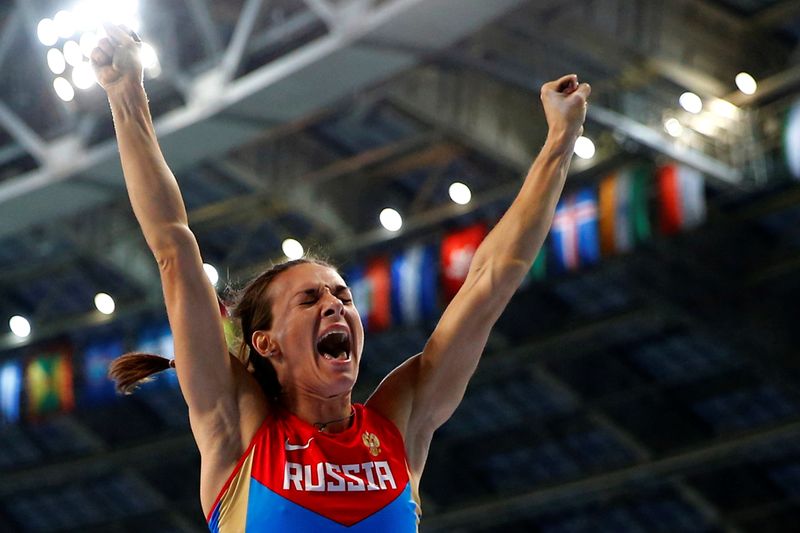By Karolos Grohmann
ATHENS (Reuters) - Few have dominated their sport like Russian pole vault record holder Yelena Isinbayeva, with her back-to-back Olympic gold medals, more than two dozen world records and seven indoor and outdoor world titles.
The 37-year-old retired athlete, now a member of the International Olympic Committee, also made headlines for her criticism of the punishment her country received for a state-backed doping scandal and for her controversial views on homosexuality.
Her vaulting skills are considered to be technically among the best of any athlete, male or female.
Powerful and explosive but also graceful in her upward swing and extension, the Russian dominated her sport for almost a decade while also drawing attention with her jovial manner.
Her outdoor world record of 5.06 metres, set in Zurich in 2009, still stands.
Isinbayeva burst onto the scene as a 21-year-old breaking the world record in 2003. A year later at the Athens Olympics she became popular with audiences for her pre-jump routines, before being crowned Olympic champion with another world record.
She repeated her gold-winning feat at the 2008 Beijing Olympics, confirming her status as the best female pole vaulter of all time.
But she left the 2009 world championships in Berlin in tears after spectacularly failing with all three of her first attempts. Her response was to set yet another world record just a few weeks later - one which still stands today.
Isinbayeva earned a bronze medal at the 2012 Olympics on a chilly and wet day where she looked uncomfortable, and immediately delayed her retirement plans by three years and pledged to get her Olympic gold back in Rio de Janeiro in 2016.
Her hopes of a third gold medal were dashed, however, when Russia's track and field athletes were banned from the Rio Olympics over the country's doping record, which led her to retire.
"If you look at the big picture, when you compete without Isinbayeva, it can't be a proper gold medal," she said of Rio, while also attacking the Russian whistleblowers in the scandal.
The doping affair has rocked the world of sport and led to several more Olympic sanctions against Russia since 2016.
Isinbayeva had already caused a furore in 2013 with her comments on homosexuality ahead of the 2014 Sochi Olympics.

"We consider ourselves, like normal, standard people, we just live boys with women, girls with boys ... it comes from history," she had said of Russians at the time. She later said her words had been misinterpreted.